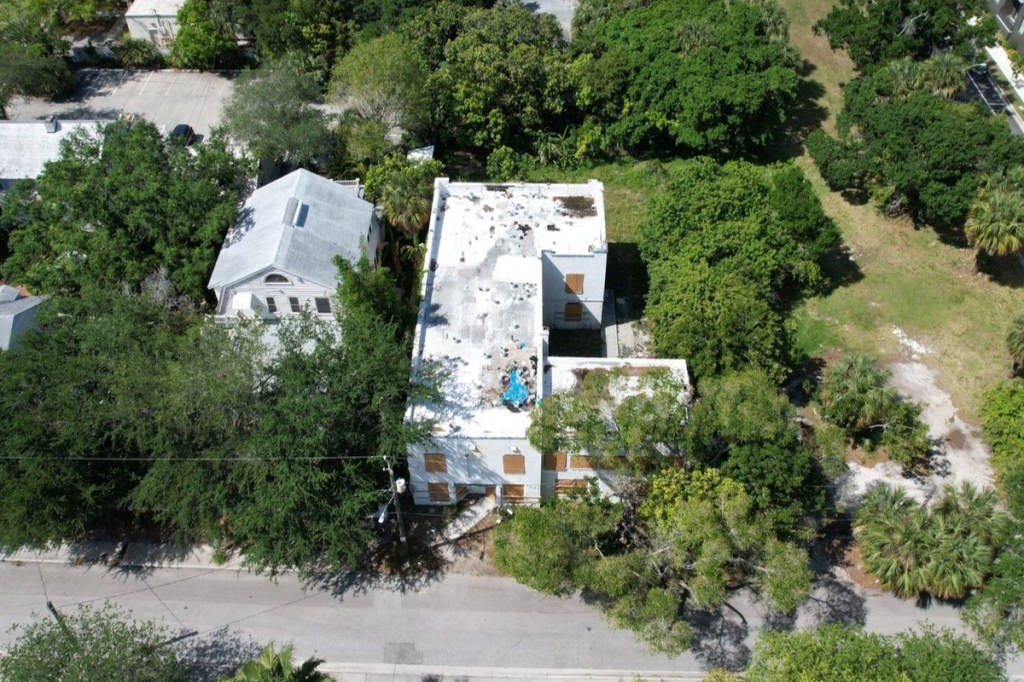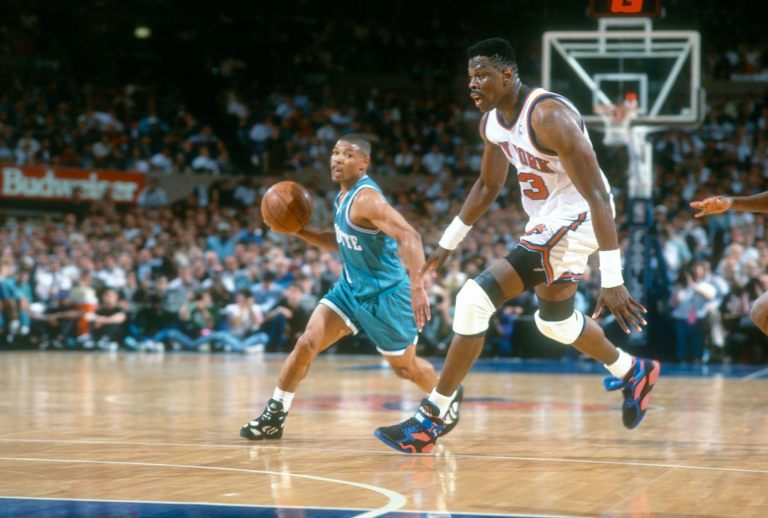Stained walls and boarded-up windows mark a dilapidated building wedged between newer developments in Sarasota, Florida’s vibrant Rosemary District. Looking at the Colson Hotel in its current state, you’d never know it was once a safe haven and symbol of resilience for Black Americans — but a local community is out to change that.
Following a negotiation process that lasted over a year, registered benefit corporation DreamLarge purchased the century-old landmark last December, saving it from a potential demolition meant to make way for new townhomes. The acquisition, hailed as a milestone for preserving the city’s Black heritage, was a community effort, involving support from a plethora of key players: the Sarasota Alliance for Historic Preservation, the city of Sarasota, Gulf Coast Community Foundation, and leaders of the city’s Black community.
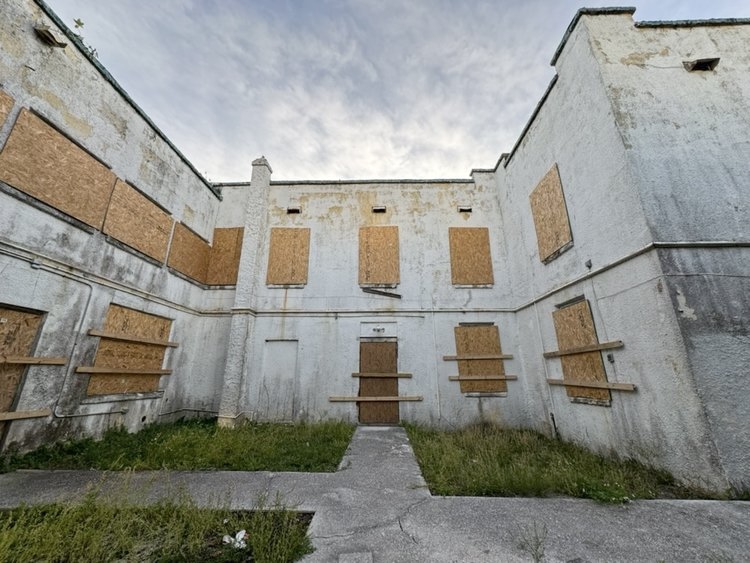
“The successful preservation of the Colson Hotel is a testament to the strength, passion, and resilience of our community,” DreamLarge founder Anand Pallegar told Nice News, adding, “It’s proof that when a community unites around a meaningful cause, real change happens. The Colson’s story could have ended in demolition, but instead, it’s entering a new chapter — one that continues to honor its legacy while shaping Sarasota’s future.”
A Hot Spot That Fostered Hope
The Colson Hotel’s heyday was in the early 1920s, back when Sarasota’s first Black community, in the area now called the Rosemary District, was known as Overtown. At the time, the landmark was one of southwest Florida’s only hotels where Black people could stay. It was the era of Jim Crow, and segregation laws meant Black travelers and residents alike had a tough time finding safe accommodations.
In 1884, the formerly enslaved Rev. Lewis Colson settled in Sarasota, the first-known free Black person to do so. Not only did Colson drive Sarasota’s first stake in the ground to plat the town, but he and his wife Irene became respected members of the community, with Lewis helping organize the Bethlehem Baptist Church and becoming its first minister. Irene, a midwife, provided much-needed medical care to members of the community who didn’t otherwise have access.
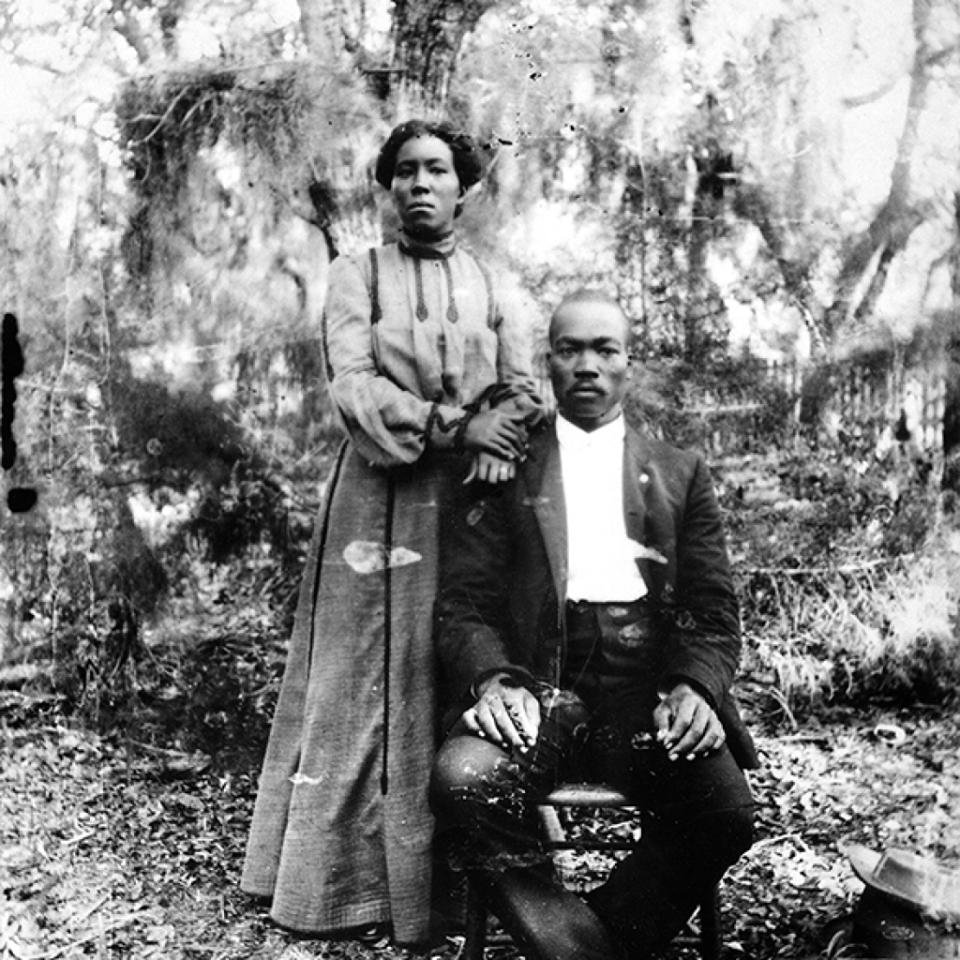
When the Colson Hotel, initially called the Colson Hotel for Negroes, was built between 1925 and 1926, it was named in Lewis’ and Irene’s honor. “They were instrumental in that their fingerprints are in the founding principles of Sarasota,” Pallegar told YourObserver. “The fact that they are the only Black people buried in the Rosemary Cemetery — the fact that this hotel sits literally a block from their grave — it’s really an incredible story, and it’s a story that not many people really understand. That’s how Sarasota was built.”
The 28-room hotel, complete with a soft drink parlor and barber shop, rapidly turned into a sanctuary for Black people, a “symbol of hope” against a backdrop of systemic oppression, per the website Save the Colson. And according to Vickie Oldham, CEO of the Sarasota African American Cultural Coalition, it was a “very, very lively place.”
“Can you imagine entertainers that were on the Chitlin Circuit coming through there to stay the night, after they had played, say, at one of the local juke joints,” Oldham remarked to WGCU, adding: “Can you imagine what it was like for Negro Baseball League players to stay there over the night and be going to play competitively another Negro Baseball League game.”
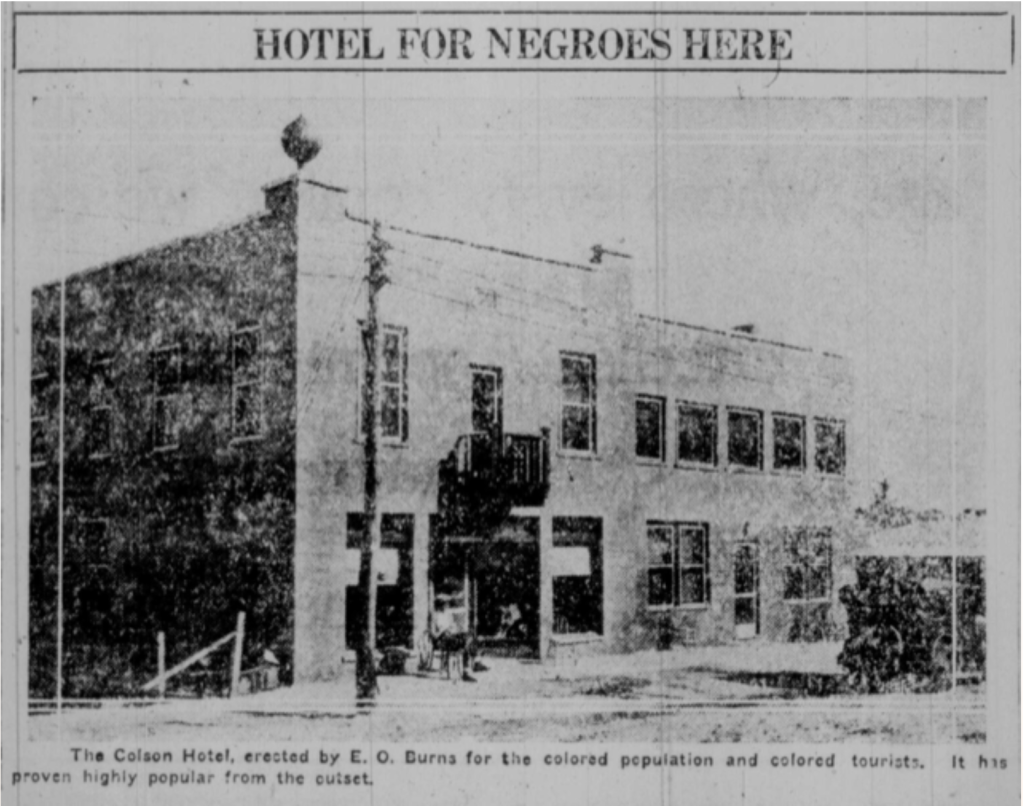
In the late 1940s or early ’50s, the Colson became the Hotel Palm, and over the following decades, Overtown was gentrified and then rebranded as the Rosemary District in the ’90s. The hotel was used as a boarding house for a period, per Sarasota Magazine, but eventually it fell into disrepair and sat vacant — with its future up in the air.
“Meaningful Progress Takes Time”
In 2023, when Maximilian Vollmer purchased the Colson and its surrounding parcel of land via his development company, JDMax, he didn’t realize it was a historic site. Vollmer wanted to tear down the hotel to build townhouses, but was denied a demolition permit from the Sarasota Historic Preservation Board.
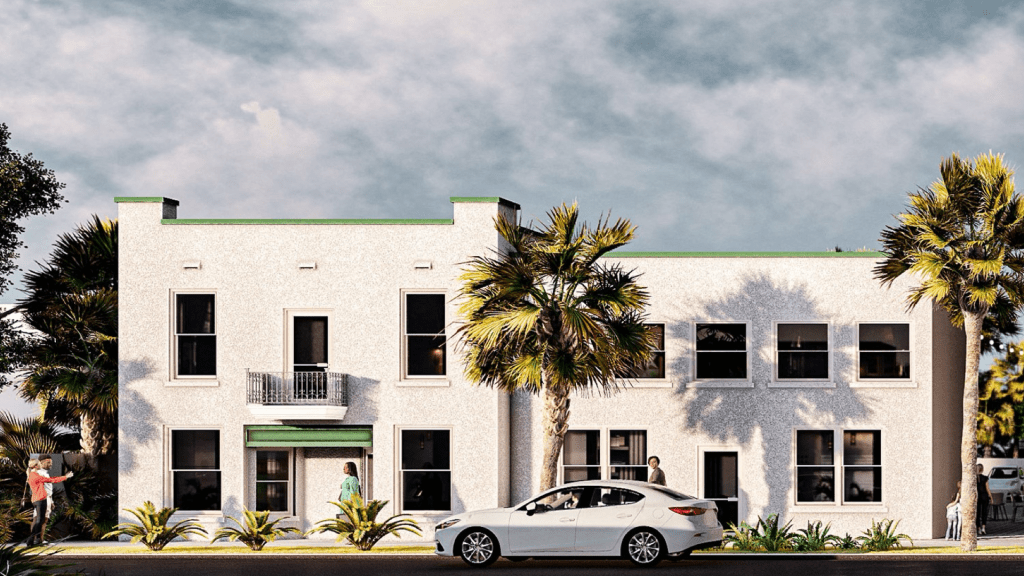
A rendering of what the Colson could look like
That same year, the Sarasota Alliance for Historic Preservation named the Colson one of its “Six to Save,” a designation used to identify local historic buildings that are in danger of being demolished. Pallegar, who has acquired and renovated other buildings in the area, knew he had to act.
“If you look at the studies that were done by the Alliance for Historic Preservation, if you look at some of the other case work that we have in the neighborhood, it’s definitely a salvageable building,” he told WUSF last year.
After gathering the aforementioned allies and presenting a collective vision to the Sarasota City Commission in September 2024, Pallegar negotiated a deal with JDMax: DreamLarge bought the building for $700,000, while JDMax kept the parcel’s east side to use for townhouse developments. But the “pink box,” as many refer to the portion of land Pallegar acquired, would be saved.
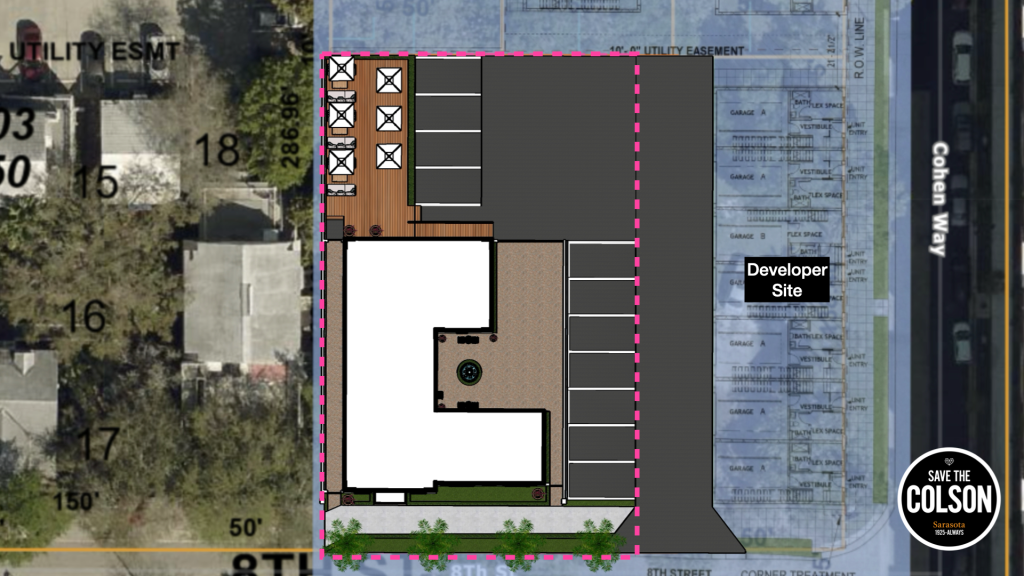
How did he pull off such a feat? “Timing is everything,” Pallegar shared with Nice News. “The alignment of community support, city backing, and a clearly envisioned plan for the Colson’s future ultimately made this acquisition possible. It’s a reminder that meaningful progress takes time, but it’s always worth the effort when driven by purpose.”
Looking Ahead While Honoring the Past
Now that the Colson has been saved, its champions have big dreams for its future — which could include a jazz club, community center, or even another hotel.
“Our restoration efforts will ensure that its legacy is preserved while making it a space for future generations to gather, learn, and create,” Pallegar said. “We’re engaging the community to shape its new purpose. Every step we take in its restoration will be rooted in authenticity and respect for the people who built and sustained this space.”
When looking at next steps, it’s important to Pallegar to restore the building so that it’s both structurally sound and historically accurate. He plans to host conversations with the community to “co-create its future purpose,” secure funding that supports sustainable operations, and ensure the new Colson has an “active and meaningful” place in the city — emphasizing that whatever it becomes needs to be financially and operationally viable long-term.
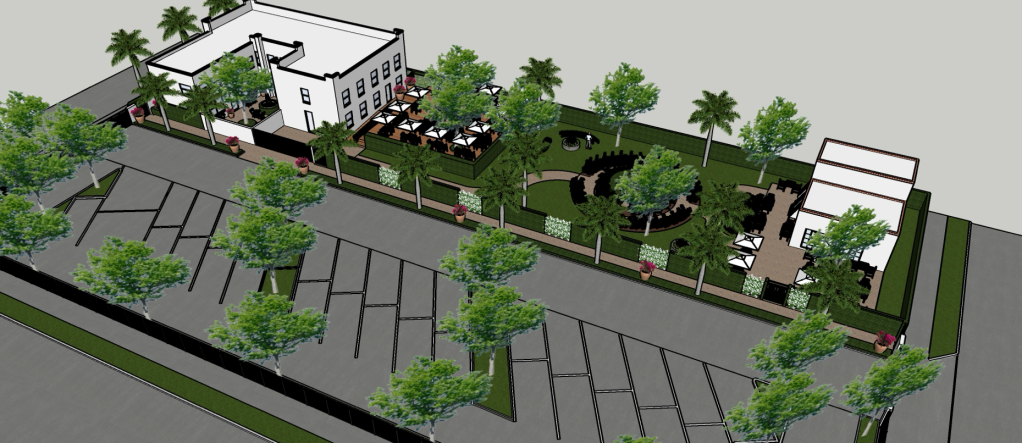
A rendering of what the renovated Colson Hotel, and the site between 8th and 9th streets, could look like.
And ultimately, Pallegar would love to one day turn over ownership to the Black community. “This is just the beginning,” he said. “The Colson’s preservation is a win, but its impact will be determined by how we activate its space to serve and inspire generations to come.”
RELATED: Saving an Endangered Route 66 Gas Station: Once a “Safe Haven” for Black Travelers
